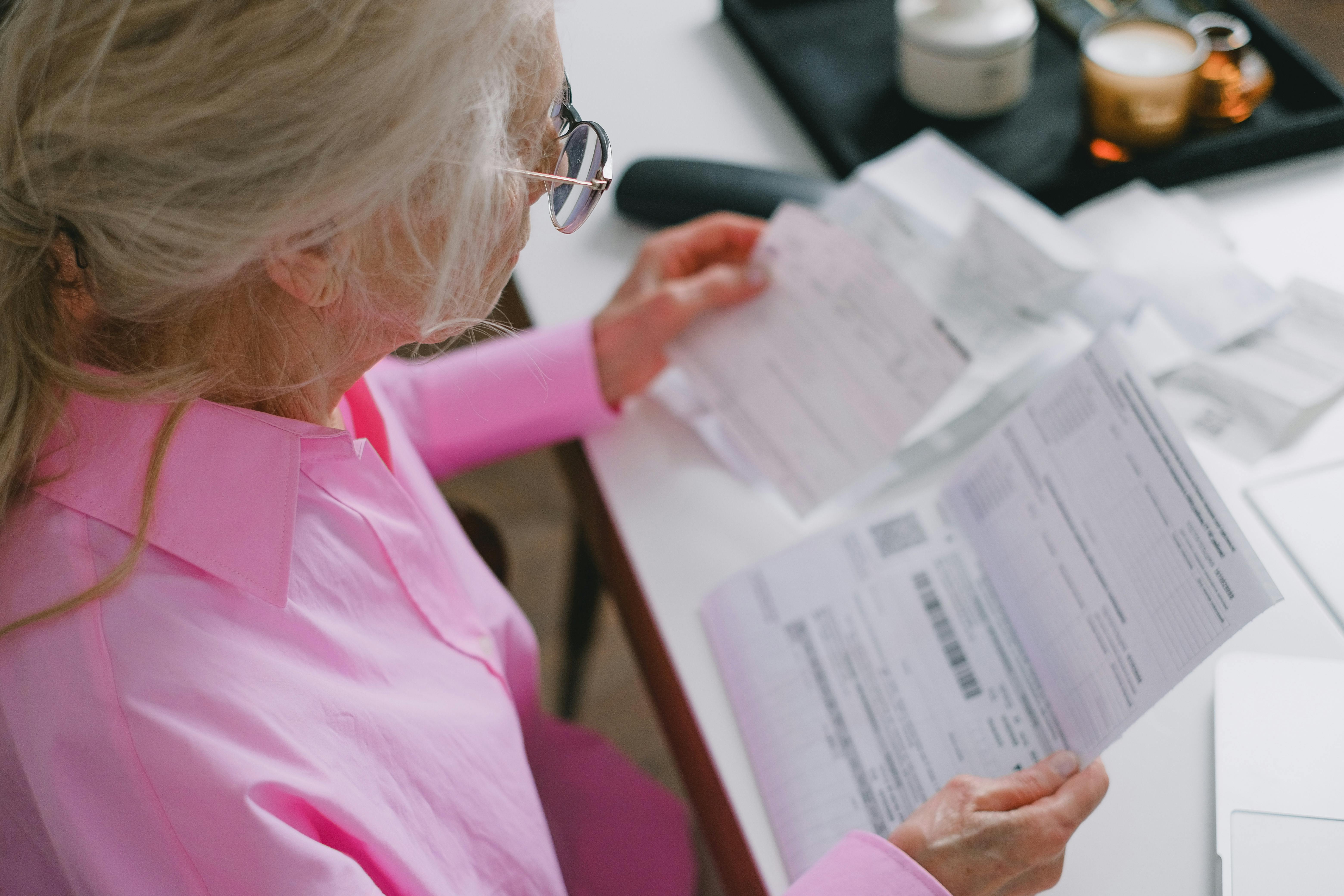
Inheriting a house may seem like a blessing: a free property, a potential investment, or even a new place to call home. But the reality is often more complicated. For many Northwest Georgia residents, an inherited home comes with hidden financial and legal responsibilities that can quickly become overwhelming.
Surprises like unexpected taxes, costly repairs, ongoing holding costs, and delays from probate can turn what seems like a valuable inheritance into a heavy burden.
In this guide, we will break down the most common and often overlooked costs associated with inheriting property in Northwest Georgia, so you can make informed decisions before it is too late.
1. Do You Have to Pay Taxes on Inherited Property in Northwest Georgia?

Many heirs are surprised to learn that Georgia does not have a state inheritance tax. This means you typically will not owe the state anything simply for inheriting a house. However, you are not completely off the hook. While Georgia may not tax the inheritance itself, federal tax implications can still apply, especially if you plan to sell the home.
Federal Capital Gains Tax
If you receive a property as an inheritance and decide to sell it, you might face capital gains tax. This is a federal tax on the profit from the sale. The good news is that the IRS uses a stepped-up basis, which adjusts the property’s value to its fair market value as of the date when the previous owner passed away.
Example:
If your parent bought the home years ago for $100,000 but it was worth $280,000 when you inherited it, selling the home shortly after for $280,000 means you will not owe capital gains tax. This is because there is no profit compared to the stepped-up basis.
However, if you hold on to the home and its value increases, any profit beyond that stepped-up value could be taxed. You can learn more from the IRS’s official guide to capital gains taxes.
Important Notes:
- If there are multiple heirs, each may be taxed on their share of any gains
- Renting the home can bring additional tax implications
- Selling years after inheritance could mean the stepped-up value no longer matches the market
While taxes may not seem urgent, ignoring them could lead to a surprising tax bill later, especially if the property appreciates or if you are unfamiliar with capital gains rules.
2. Common Costs That Come With Inheriting a House

Inheriting a property does not just mean gaining an asset. It also means taking on financial responsibilities, many of which can sneak up if you are not prepared. Even if the home is paid off, you may face ongoing costs, unexpected bills, and deferred maintenance that needs immediate attention.
Let’s break down the most common expenses you might encounter.
Property Taxes
Whether the home is occupied or vacant, annual property taxes still apply. If the previous owner was elderly or qualified for exemptions, those benefits likely will not transfer to you. You will need to:
- Reassess the property value
- Confirm the current tax rate with your local county assessor
- Pay any past-due taxes that were not settled by the estate
Insurance
You cannot keep the old homeowner’s insurance policy active under the previous owner’s name. After inheriting the home, you are required to:
- Get a new insurance policy in your name
- Switch to vacant property coverage if the home will be empty
- Pay more for landlord insurance if you plan to rent it out
These changes often come with higher premiums than a standard homeowner’s policy.
Maintenance & Repairs
Many inherited homes are older or have not been well maintained. Small problems can add up quickly, especially if you intend to sell or rent the home. Common repair costs include:
- Roof leaks or structural issues
- Outdated electrical or plumbing
- HVAC or water heater replacements
- Cosmetic fixes like paint, carpet, or fixtures
- Yard cleanup and landscaping
You may also need to pay for inspections or appraisals if you plan to sell on the open market.
Outstanding Debts or Liens
It is not uncommon for inherited homes to come with surprise debts, such as:
- Unpaid mortgages or home equity loans
- Tax liens from the IRS or state authorities
- Past-due property taxes
- HOA or community fees
You should run a title search or consult a probate attorney to uncover any hidden obligations. These debts may need to be settled before the home can be sold or transferred.
Bottom Line
Even if the home seems like a financial win, the real cost of keeping it can be significant. Many heirs spend thousands of dollars maintaining or preparing the home for sale. This is why some choose to sell quickly and avoid the burden altogether.
3. Who Is Responsible for the Mortgage, Utilities, and Upkeep?
One of the most misunderstood parts of inheriting property is who manages it right away, especially if there are ongoing bills or debts tied to the home.
The Mortgage Doesn’t Disappear
If the home still has a mortgage, that loan does not go away when the owner passes. As the heir, you become responsible for the debt. This means you could:
- Take over the mortgage if allowed
- Pay it off with other estate assets
- Keep the loan current while the estate goes through probate
In Northwest Georgia, lenders may not communicate directly with heirs until probate is opened or completed. However, mortgage companies will continue accepting payments and may proceed with foreclosure if payments fall too far behind.
Limited Access Can Lead to Trouble
Many heirs do not know who the lender is or have no access to statements. Interest, late fees, and penalties can pile up. In some cases, banks begin foreclosure before the family realizes it.
Utilities and Property Services
Even if no one is living in the home, you may still need to:
- Keep electricity, water, and gas on to prevent damage
- Maintain the yard and exterior to comply with HOA or city codes
- Pay trash, sewer, or pest control costs
- Monitor the property to prevent vandalism or squatters

These ongoing expenses add up quickly, especially during long probate cases or delays between heirs.
Repairs and Routine Upkeep
You are also responsible for:
- Addressing code violations or deferred maintenance
- Routine maintenance, including plumbing, leaks, and HVAC
- Cleaning and clearing out the home
- Securing the property if vacant, including locks, windows, and alarms
Unless you plan to live in the home, you will spend money on a property you may not want to keep.
Bottom Line
Once the home is legally yours, you are responsible for everything: mortgage, bills, upkeep, and risk. If you are not prepared to manage all of it, selling may be the cleanest and most affordable option.
4. Hidden Legal or Probate Costs Most People Overlook

Inheriting a home often carries emotional weight, but many people are caught off guard by the legal and administrative costs tied to probate, especially if there was no will or multiple heirs.
Some probate cases are simple, but many require time, paperwork, court filings, and sometimes lawyers, all of which cost money.
Probate Filing Fees and Court Costs
The probate process in Northwest Georgia typically includes:
- Filing fees with the county probate court
- Publication costs if public notice is required
- Possible costs for court-appointed representatives or appraisers
These fees can range from a few hundred to several thousand dollars, depending on the estate’s complexity and the county.
Attorney Fees
If there is no will or if heirs disagree, a probate attorney may be necessary. Attorney fees are usually paid from the estate, which reduces the inherited home’s value before you receive it.
Even for simple tasks like changing deeds, transferring titles, or clearing liens, a lawyer may be required, costing anywhere from $1,000 to $5,000 or more.
Appraisals, Title Searches, and Deed Transfers
These often overlooked costs include:
- Hiring a licensed appraiser to determine fair market value
- Running a title search to ensure the property has no hidden liens or legal disputes
- Paying for a new deed and recording fees to legally transfer the property into your name
All of these must be completed before selling, and some costs must be paid upfront.
Probate can become expensive and complicated, especially in Northwest Georgia. That is why we created the Ultimate Guide to Probate and Inherited Property to help you understand the process, avoid mistakes, and make confident decisions.
Dealing with Multiple Heirs? Expect Delays and Expenses
If you inherited the property with siblings or other family members, things can get tricky fast. Disagreements about keeping or selling the home may lead to:
- Legal disputes or forced sale proceedings
- Longer timelines with probate dragging on for six to twelve months or more
- Higher legal costs due to mediation or additional filings
Bottom Line
Probate is rarely free or fast. Even simple cases can become expensive, especially with multiple heirs, legal delays, or unresolved title issues. Many heirs choose to sell quickly to avoid months of unexpected fees and stress.
Feeling Stuck With An Inherited Property?
No Repairs or Probate Headaches
5. Can Selling the Home Help You Avoid These Costs?

For many Northwest Georgia heirs, selling the inherited home is the smartest way to avoid growing expenses, responsibilities, and legal headaches.
While holding the property may seem like a good long-term investment, short-term financial and emotional costs can be overwhelming. Selling, especially to a cash buyer, offers a clean way out.
Why Selling Can Make Financial Sense
By selling early, especially before probate drags on or costly repairs are needed, you can:
- Avoid ongoing property taxes, insurance, and utilities
- Stop worrying about mortgage payments or foreclosure
- Skip repairs, cleanouts, and showings
- Avoid disputes between heirs
- Turn the property into cash to distribute or reinvest
For many heirs, the home is more of a liability than an asset. Selling allows you to offload the burden and walk away with peace of mind.
Selling to a Cash Buyer Simplifies Everything
If you want to avoid listing, waiting months for a buyer, or paying agents and closing fees, selling directly to a professional home buyer can save time, stress, and money.
When you sell to We Are Home Buyers, you can:
- Sell as-is, with no repairs, cleaning, or showings
- Close in as little as 7 to 14 days
- Avoid fees and commissions
- Get help navigating probate or title issues
- Reduce your tax risk by selling quickly and preserving the stepped-up basis
Thinking about selling your inherited property?
👉 Read our full guide to selling an inherited house in Northwest Georgia
Bottom Line
If the hidden costs, legal headaches, or family disputes are starting to build, selling may not just be the easier option, it may be the smartest one.
Frequently Asked Questions
Do I have to pay taxes when I inherit a house in Northwest Georgia?
No. Georgia does not have a state inheritance tax. However, you might owe federal capital gains tax if you sell the home for more than its fair market value at the time of inheritance. This depends on how long you keep the property and whether the stepped-up basis applies.
What happens if the inherited home still has a mortgage?
The mortgage debt does not disappear. As the heir, you are responsible for continuing payments, or the lender may foreclose. Mortgage companies often will not speak to heirs until probate is settled, but interest and late fees will continue to accrue.
Can I refuse an inherited property if I do not want it?
Yes, you can legally disclaim an inheritance, including property, by filing a written disclaimer within a set time frame. This allows you to refuse the responsibility. Many heirs choose to sell the home instead.
What if there are multiple heirs and we cannot agree on what to do with the home?
Disagreements among heirs are common. If no agreement is reached, one party may file for a partition sale, forcing the property to be sold through the courts. Selling to a cash buyer early can help avoid disputes and speed up the process.
Do I have to go through probate before selling the house?
In most cases, yes. Probate must be opened and settled before the property can be sold unless the property was held in a trust or transferred outside probate. Some buyers can work with your attorney or estate to prepare the sale while probate is ongoing.
Can I sell the inherited home without making repairs?
Yes. When you sell to a cash buyer like We Are Home Buyers, you can sell the home as-is without cleaning or repairs. This is ideal for heirs who want a fast and stress-free sale.
Conclusion

Inheriting a house in Northwest Georgia can feel like a gift. But once you factor in hidden costs, legal steps, and emotional stress, it can quickly become a major responsibility.
From surprise taxes to unpaid mortgages, probate delays, and ongoing maintenance, the costs add up fast if you are unprepared.
The good news is, you do not have to carry that burden alone.
At We Are Home Buyers, we help people just like you:
- Sell inherited properties fast
- Avoid foreclosure, liens, and costly repairs
- Navigate probate complications
- Get a fair, no-obligation cash offer and close on your timeline
Ready to Stop the Stress? Let’s Talk.
We make the process simple, fast, and pressure-free.
👉 Call or text us now at (706) 670-6886
or
👉 Request your free cash offer here
There’s no cost, no obligation, and no better time to move forward.
